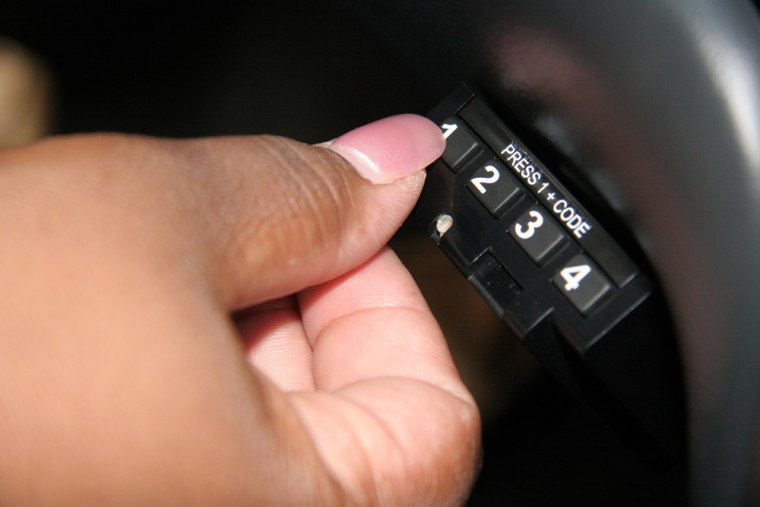Rashida Redd punched in a six-digit code in her Pontiac Grand Prix and got a new lease on life.
The 34-year-old Pottstown mother of five had to file for bankruptcy about a year ago in the face of mounting medical bills from her husband's open heart surgery. Despite her poor credit history, Redd was able to lease the three-year-old car from Williams Preowned of Limerick, Penn. on the condition that it have a starter-interrupt device.
"At least I was able to save the house," said Redd, now separated.
The device, the size of a cigarette pack and mounted under the dashboard, flashes green if she has made a car payment on time. If she misses her $94 weekly payment, it won't let her car start.
Starter-interrupt devices are becoming a popular way for lenders to ensure they get paid, and consumers seem willing to accept them to get into nicer cars, use a smaller down payment and qualify for a lower interest rate, according to device manufacturers.
Ken Shilson, managing partner at Shilson Goldberg Cheung & Associates in Houston, an accounting firm that works with auto dealers who make use of the device, said the market for them is growing.
Jump in sales
The major manufacturers of the device report double-digit increases in sales so far this year, compared with the same period a year ago. An estimated 1 million are in use today, he said.
Consumers with poor credit often are faced with interest rates of over 20 percent — nearly triple the rate drivers with good credit can get, Shilson said. They also have to pay a down payment equal to 10 percent to 20 percent of the car's purchase price, while buyers with good credit can purchase a vehicle with little or no money down.
Redd's car is equipped with a device made by Payment Protection Systems Inc., of Temecula, Calif. It's one of three manufacturers that dominate the market — the others are PassTime in Littleton, Colo., and Pay Technologies of Cleveland, Ohio.
The companies make a variation of the same device: The units are connected to the starter and emit a brief series of sounds or flashes of light days before the payment deadline.
A driver who misses a payment either won't get a code to keep the vehicle operating or the dealer or lender can remotely stop the car from starting.
Devices typically are mounted under the dash or hidden in places such as a glove box.
Manufacturers say the device won't kill the engine while the car is being used; it will only stop the vehicle from starting. Also, consumers late on payments are allowed emergency starts, the companies say.
'Buy here, pay here' market
Shilson said the devices are mainly geared for the "buy here, pay here" market — consumers with the lowest credit scores. Typically, these buyers have filed bankruptcy or had a repossession.
"Buy here, pay here" customers also are limited to how much car they can buy, typically $5,000.
Auto Trakk LLC, of Montoursville, Pa., Redd's lender, said the device lets the company consider serving even the riskiest customers.
"It enables us to look at lower credit scores," said Denny Sullivan, marketing manager.
Jack Gillis, a spokesman for the Consumer Federation of America and author of "The Car Book," doesn't like the idea of having a third party have control over a driver's vehicle.
"It's a rather draconian measure to take," he said. "What these companies are able to do is sell cars at virtually no risk to themselves, with all the risk to consumers."
